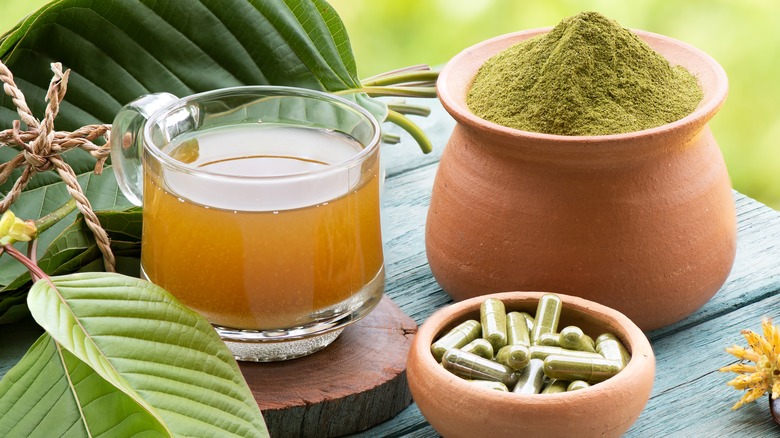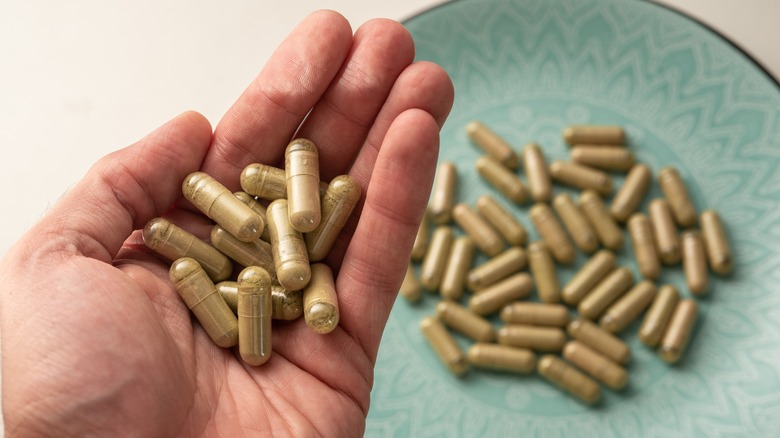The Popular Herbal Supplement That's Actually A Health Risk
While many different medications exist to support one's mental health, some people prefer to stick to more natural options. For some individuals, this may mean breathing techniques, exercise, and other forms of self-care. For others, supplements may be their method of choice to support mood, energy, and overall emotional wellness.
According to data from the 2019 National Survey on Drug Use and Health, 0.7% of people across the country ages 12 or older had reported using kratom within the last year (via American Journal of Preventive Medicine). While many consumers sing its praises when it comes to pain relief and mood support, this fast-acting, plant-based supplement has health experts cautioning against its use.
Available in the form of capsules, powders, teas, and beyond, the supplement is purported to help with everything from cramping to diarrhea, muscle pain, panic attacks, and more (via Mayo Clinic). However, some vendors are now being sued in light of a growing number of overdoses linked to the herb, reports NPR.
Kratom use can be dangerous, even fatal
Kratom works by activating the brain's opioid receptors. In different amounts, this can produce various effects from increased energy to euphoria, analgesia (via British Journal of Pain), and even sedation if ingested in excess, according to Mayo Clinic. Alternatively, some individuals use it to relieve symptoms of opioid withdrawal.
It's easy to assume that plant-based products don't pose any risks to human health. However, between 2011 and 2017, about 1,800 kratom-related incidents were reported to poison control centers across the country, including cases of infant exposure. Side effects of the supplement include weight loss, muscle pain, liver damage, dizziness, vomiting, and more. In more severe cases, kratom use can lead to hallucinations, delusion, addiction, depression, impaired breathing, seizure, coma, or death. The supplement has also been shown to have negative interactions with certain prescription medications that may subsequently impact brain function. Even if a person is attempting to take a small dose, experts report that the potency of the plant can vary. This makes it difficult to know the exact dosage — or the related side effects a person may experience.
The push for government regulation
Classified as a dietary supplement, the U.S. Food and Drug Administration (FDA) does not formally regulate kratom, but still advises against its use, reports NPR. However, without government regulation, consumers are left in the dark as to the supplement's ingredients, concentrations, instructions for use, and potential risks. Kratom is available for purchase in gas stations and vape stores. Atlanta-based attorney Matt Wetherington told NPR, "When you're selling a drug next to Skittles or energy drinks, you have no means of knowing that you're dealing with something that is exponentially more dangerous than anything else on the shelf."
Whether or not kratom has any real health benefits to offer users remains undetermined, as there is currently no credible evidence to back it up (via Mayo Clinic). As a result, government officials are working to ensure that the public knows the very real risks associated with the product. Presently, about 12 states have made moves towards regulating the supplement, with five states having already banned kratom altogether.



